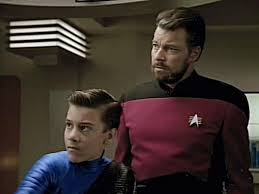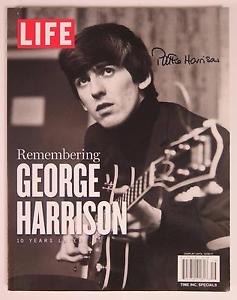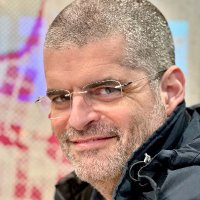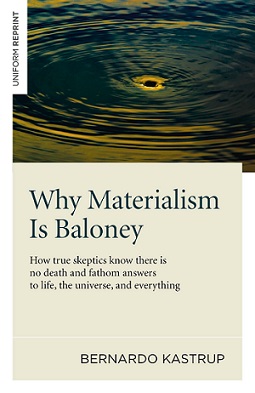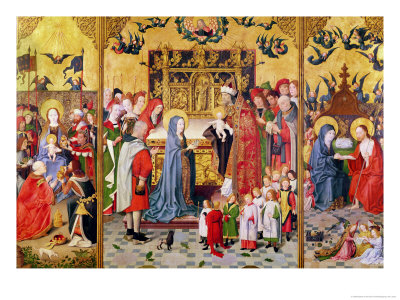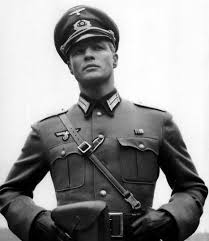|
home | what's new | other sites | contact | about |
|||
|
Word Gems exploring self-realization, sacred personhood, and full humanity
the essence of a first-rate mind
return to the main-page article on "Clear Thinking"
there is no neat tidying-up of loose-ends for this vast subject As mentioned, I'd been gathering information for the "clear thinking" writing for some time. As I surveyed the unprocessed data, I stood amazed at the wealth of knowledge that might be discussed here. However, as I thought about what I wanted to say in this article, a creeping sense of unease began to envelop me: if I say too much, if I litter the page with a large collection of "mind techniques," of dishonest debating tricks to avoid, then, by implication, I would be errantly suggesting that "clear thinking" is a function of "content" not "structure."
the key point to understand about lack of clear thinking: it's structure, more than content, creating a 'moronity' Henry Ward Beecher: "The continuance and frequent fits of [the Small Ego's obsession to protect itself] ends in choler, bitterness, and moronity, when the mind becomes ulcerated, peevish, and querulous, and is wounded by the least occurrence.”
Raw sensory data is "content," but the mind itself imposes conceptual "structure" on the data. Kant explained it to us. What does this mean? It's all very difficult to describe and talk about, but people see the world differently. Each is privy to the same sensory data but the output can vary monumentally. What is it like? In the NDE article I referenced an analogy with Will Riker.
an analogy from Star Trek, Next Generation In Future Imperfect (Episode 82, Nov. 12, 1990) Riker experiences, what I would term, several levels of reality. At one point, it appears that he's a captive of the Romulans; then, it seems that many years have passed, and he's back on the Enterprise, now as Captain;
but finally, he's confronted by a frightened boy - in truth, an alien-being - who, for his own protection, has engineered these various simulations of reality, these different worlds of perception. All of us, too, each in his or her own way, live in different worlds of perception.
Some of Kant's "categories" - such as time and space - are permanent structures of the mind (at least, until we learn how to travel near the speed of light); they're not going away. The mind has locked-in these conceptual structures of how we perceive the 3-D universe. But I would contend that some mind-imposed conceptual structures are temporary and reflect our level of consciousness. For Riker, influenced by the alien, his "world" lasted only as long as his convictions about it. So it will be with us, in a certain context.
the temporary conceptual structures of apparent reality imposed by the Small Ego People who are led - and this would be nearly everyone - by the Small Ego live in perceptual "worlds" dominated by the seeming reality of (1) I don't have enough"; and, more fundamentally, (2) "I am not enough." In this nightmare-world of deficit, our "glass is always half-empty" and no amount of content will ever satisfy - be it more money, power, sexual conquest, "the one true church with its one true doctrines," or anything else that the Small Ego seeks in order to find its significance, safety, and security.
In terms of "clear thinking," there can be none for the immature; certainly, not as a settled state of spirit. In this condition of "lack of capacity," centering upon "I am not enough," clear thinking is not possible, and so will it continue while one is driven by the Small Ego as taskmaster: "They know not what they do." Under the ego's draconian rule, Thouless's "dishonest tricks" of the mind will proliferate endlessly as structurally-imposed perceptions of lack. During this time of existential terror of "not enough," all forms of incivility and aggression, small and large, will be viewed as "self-defense." Everyone is seen as a threat, or potentially so, by the Small Ego. This insanity, a systemic paranoia, leads one to protect oneself, unthinkingly or consciously, in every situation, with the "games people play." Again, we can forget about "clear thinking," in its highest sense, when the Small Ego runs our lives.
the permanent conceptual structures of ultimate reality imposed by the True Self The Small Ego terrorizes itself with visions of lack and poverty. Why should this be so when "The Eternal is One" - when God/Universal Consciousness is All Pervasive Reality, a Singular Totality, and there is nothing else? - nothing but goodness, joy, peace and abundance for all.
What's that you say? - you don't see, you don't feel, this kind of superabundance in the universe? Most of us don't; that is, the Small Ego leading us will never accept this high-moment view of life. Each of us will finally see and feel it, but not until we're plugged into a different conceptual structure which will interpret raw sensory data in a different way - suddenly, the glass will appear "half-full." It's the same glass, but now we'll see it differently.
the essence of a first-rate mind There was a time when I thought the answer here was more knowledge, more information. Furnishing the mind with knowledge, like outfitting a living room with all the right furniture, surely, I thought, would lead to better and more clever thinking. Is this not the essence of a first-rate mind? But then this view, for me, came under attack when I considered highly educated people of society who spout nonsense. Authoritarian ego-institutions of the world, be they corporate, academic, governmental, or religious, all have their staff-PhDs, their “aligned interests,” paid to support the party-line, but usually not in support of “the truth.” I thought of extreme examples of this kind of intellectual sophistry-barbarism. Think of highly educated and sophisticated Nazi officers supervising the ovens at Auschwitz. Allow me to quote from my article on “levels of consciousness”: One of the most disturbing and incongruous pictures - maybe you've seen this in a movie, but, it's historically accurate - a Nazi officer, at home, sitting in his leather easy-chair; a blonde-haired perfect little boy and perfect little girl play their puzzles at his feet. A model of good breeding and refinement, he quietly sips his dark-red sherry from a handcrafted crystal goblet, as he enjoys the ambiance of Beethoven's Sonata #14, the Moonlight Sonata, a musical tranquility. On his lap rests a well-worn volume of Kant's Critique Of Pure Reason; also, at his elbow, on the rich-mahogany side-table, reside copies of Schopenhauer and Hegel. His eyes wander now to a spot above the whispering fireplace - a favorite painting of his, Altarpiece of the Seven Joys of the Virgin, the Adoration of the Magi, by an unknown German Renaissance artist...
As he revels in the multihued magic of such aesthetic, instinctively, and enjoying a measure of comfort in so doing, he fingers his belt-buckle, which offers quiet assurance of... God with us.
Third Reich Nazi Werhmacht belt buckle with inscription, Gott mit uns; meaning, God with us.
In the morning, he must leave this oasis of peace, this serenity, wherein he is sustained by the comforts of home and hearth, his wife and children. He will return to his work, just outside a village in southwest Poland. He is one of the supervisors at the Auschwitz ovens and gas-chambers, is charged with the duty of separating the fathers from their families, the weeping mothers from their blonde-haired perfect little boys and perfect little girls. He doesn't allow himself to think too much of these sounds of weeping; after all, he consoles himself, these sordid creatures are not really human, anyone can see that; in any case, they brought all this upon themselves.
What is the essence of a first-rate mind? I came to see that it is more than knowledge and clever thinking. In fact, as I finally discerned, a first-rate mind, fundamentally, has nothing to do with thinking at all. the education of a free man Nearly 40 years ago I thrilled to Mortimer Adler’s explanation of the meaning of a liberal arts education. Though I had a college degree, which, supposedly, impinged upon this topic somewhere, no one had ever explained, and I was too uncritical in my thinking to ask, exactly what is the significance of “liberal arts”? Well, as I learned, "liberal" has something to do with the education of a “free” man. Adler explained that, in ancient times, slaves, treated as “means to an end,” were “trained” not “educated.” Dogs, horses, and slaves were “trained” to some specific task, at the pleasure of a master; but a free man was “educated,” that is, according to the classical definition of the term, was offered instruction which “drew out,” from his inner nature as a human being, abilities required to live a life of freedom. Domestic servants might become technicians of information, typically, within a narrow commercial field, such as milking cows, fixing fences, feeding livestock, and picking grapes. But a free man needed an infinitely wider scope. He would be called upon to take his place in society, eventually, as an elder, a leader, who would safeguard the time-tested principles upon which a successful nation might be built. Historical definitions of the “liberal arts” take a few steps in the right direction, but, without more, quickly become unsatisfying. Its roots in slavery, in anti-humanistic policy, lead us back to the cultured Nazi. This, however, is not the fault of the term “liberal arts,” but that of low-grade minds implementing such. The essence of a first-rate mind is not that of having amassed a great storehouse of knowledge. Nothing wrong with knowledge, and we'll always want more of it, but knowledge per se is just a building-block for something else. Moreover, all of our knowledge is defective in some manner; some of it is simply wrong, and all of it is incomplete. I discussed this on the “knowledge” page. We might become a walking encyclopedia of all known facts and still be a fool, even a Nazi, or a cult-follower. Becoming a repository of knowledge, even a lot of it, without another element, would just make us a technician of knowledge. The essence of a first-rate mind is not centered in knowledge, in more "content," but advanced level of consciousness. It is a mind, in childlike joy, that looks out at the world in wonder and marvel and desires to understand the nature of all things. It is a spirit unafraid both to ask questions and to make mistakes in pursuit of "what's real." It is not cultish. It does not seek for a "strong father figure" which might offer security and safety. It does not live vicariously, but creatively and purposefully; it does not ever seek for the blessing of some external authority. The first-rate mind has learned to trust itself, it's "true self." It values cooperation but, if need be, will stand against all the world to defend a deeply-resonating element of truth. It does not need fame or the applause of the mob to feel good about itself, but rests quietly in its own judgments; holding the truth loosely in its hands, pending modification via new findings; and there's always more to come. It seeks to become more godlike, more charitable toward all. But it also, and equally, respects and honors itself, with a view toward a universal brotherhood and sisterhood. The first-rate mind has tasted the honey of ultimate reality, the ecstasy, of what it means simply to be alive. Knowing this, it is not driven to compete or prove itself, but is often content to rest, quietly and, if need be, anonymously, in its own sense of being. And when we have all this "structure" in place, the "content" of knowledge easily flows to us; and, in its coming, we know where it fits and what to do with it.
postscript Editor’s note: The following is an excerpt from the story of Clarice and Frederick, channeled information from the other side. Here we learn of the teaching methods in the schools of Summerland. Notice, and mark well, the emphasis placed on lighting a fire, creating an insatiable desire, in students to pursue knowledge and their own discovery projects, rather than a program of filling minds with disconnected facts.
******************************************************
babies and children who prematurely pass over to the next word are cared for in every way; we're now given a view of how children are educated in Summerland I would repeat that the first object of every such institution is to foster Cushna very kindly invited me to join one of the many groups of A moment later, without attracting more than the slightest attention From the commencement of her lecture the speaker carried myself, as
Editor's note: This is all astounding as teaching methods in Summerland represent the height of pedagogical wisdom. There is no forced memorization of dry facts here, no inculcation of information divorced from context. This master teacher takes one blade of grass and uses it as lead-in to other subjects. Perfect! All knowledge is connected, as all reality is connected, and it doesn't matter where a lesson might begin. The important point is to arouse curiosity and to light the fire of burning desire to accumulate knowledge! Notice in the following how the teacher leap-frogs from one aspect of knowledge to another, all from the single blade of grass! Stunningly wise and beautiful!
When all this was over I was further astonished to hear her announce The teacher went on to explain that perfection [of one's person] is only to be reached by study and the acquisition of knowledge, and the lesson ended by an arrangement to carry the subject farther on the next occasion, at the prospect of which the children were highly delighted, and I almost wished I could continue my studies with them through the whole course which had just opened so happily... “How long do they remain with you [for education]?” “That entirely depends upon circumstances. In rare instances the taint “Into schools of higher grades?” I inquired. “No, the stimulating and favourable environment, together with our Cushna conducted me from group to group and scene to scene that I Editor's note: This is so wonderful! The children remain in this "school system," not to endure a strict regimen of receiving certain facts, but until each has been stimulated to independent study and investigation of life on one's own terms -- "each goes to its own place"; until "an almost insatiable thirst for knowledge" has been instilled! Absolutely wonderful!
|
|||
|
|

